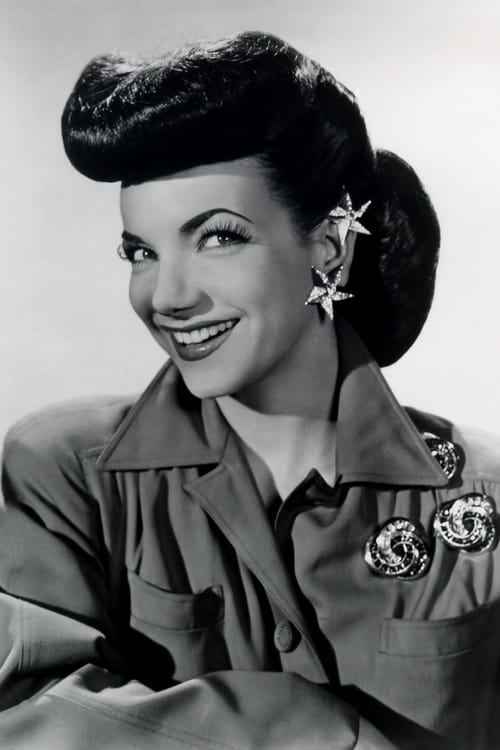
Carmen Miranda
출생 : 1909-02-09, Marco de Canaveses, Portugal
사망 : 1955-08-05
약력
Carmen Miranda was born Maria do Carmo Miranda da Cunha, 9 February 1909, near Porto, Portugal, in the town of Marco de Canavezes. Shortly after her birth, her family moved to Brazil, where her father was involved in the produce business. The family settled in the then capital city of Rio de Janeiro. After leaving school, Carmen got a job at a local store, often began singing on the job. Before long she was discovered and got a singing job on a local radio station. She ultimately got a recording contract with RCA. By 1928 she was a genuine superstar in Brazil. As with other popular singers of the era, she eventually made her way into the film world. She made her debut in the Brazilian documentary A Voz do Carnaval (1933). Two years later she appeared in her first feature film, Alô, Alô, Brasil (1935). However. it was Estudantes (1935) that seemed to solidify Carmen in the minds of the Brazilian movie audiences. Now they realized she could act as well as sing. Although there was three years between "Alo, Alo Carnaval" and Banana-da-Terra (1939), Carmen continued to churn out musical hits in Brazil. The latter film would be the last in her home country. In late 1939 Carmen arrived, with much fanfare in the press, in New York City. She was now ready to capture Americans' hearts with her talent. She appeared in some musical revues on Broadway and, just as everyone thought, was a huge hit. In 1940 Carmen was signed to appear in the 20th Century-Fox production Down Argentine Way (1940), with Betty Grable and Don Ameche. The only complaint that critics had was the fact that Carmen was not on the screen enough. In 1941 she was, again, teamed with Ameche in addition to Alice Faye in That Night in Rio (1941). The film was extremely popular with the theater patrons. Her unique songs went a long way in making her popular. It was after Week-End in Havana (1941) that American cartoon artists began to cash in on Carmen's ever-growing popularity. In the 1930s and 1940s cartoons were sometimes shown as a prelude to whatever feature film was showing. Sure enough, the cartoon version of Carmen came wriggling across the screen, complete with her trademark fruit hat and wide, toothy grin. In 1942 Carmen starred in Springtime in the Rockies (1942) with Betty Grable and Cesar Romero, both of whom she had worked with before. It was shortly after this that America began adopting her style of dress as the latest fad. 1944 saw her in three films: Something for the Boys (1944), Four Jills in a Jeep (1944) and Greenwich Village (1944). The first two did well at the box-office, but the last one left a lot to be desired. It was her last busy year in film. Carmen made one film each year 1945 through 1948. After that she didn't make a film for two years, until Nancy Goes to Rio (1950), a production for MGM. Once again didn't make a film for several years, returning with Scared Stiff (1953). She did stay busy, singing on the nightclub circuit and appearing on the relatively new medium of television. 'Scared Stiff' was her final movie performance. On 4 August 1955, she unknowingly suffered a heart attack during a live broadcast of The Jimmy Durante Show. She went home to Beverly Hills after attending a party (she neither drank nor smoked). On 5 August, Carmen suffered a fatal heart attack. She was just 46 years old.
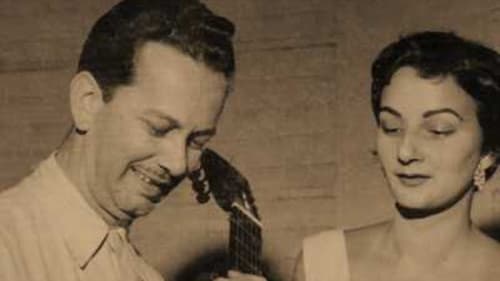
Self (archive footage)
A prodigy of stringed instruments, a pioneer of Bossa Nova, a modernizing master of the guitar: Aníbal Augusto Sardinha, better known as Garoto (1915-1955), is one of the hidden pillars of Brazilian music. Woven by rare archival material, personal diaries and testimonies, this documentary reveals his influence and the artistic conflicts of an avant-garde artist in the golden age of Brazilian radio.

Self (archive footage)
Dorival Caymmi was one of the inventors of the Bahian imagination. In his 94 years of life, Caymmi composed, sang, wrote, illustrated and thought about his Bahia, even far from it. His family, partners, friends and fans remember his history, which made him one of the pillars of Brazilian culture.

Self (archive footage)
A look at Rio's cultural, political and technical revolutions since the 1970s to 2011

Self (archive footage)
A film essay about Brazil discovered through Orson Welles' eyes during the shooting of It's All True.

Self
"Portraits and excerpts from Brazilian films from all times. Actors, directors and images that affirm cinema."

Herself (archive footage)
A biography of the Portuguese-Brazilian singer Carmen Miranda, whose most distinctive feature was her tutti-frutti hat. From her arrival in the US as the "Brazilian Bombshell" to her Broadway career and Hollywood stardom in the 1940s.

(archive footage)
Some of MGM'S musical stars review the studios history of musicals. From The Hollywood Revue of 1929 to Brigadoon, from the first musical talkies to Gene Kelly in Singin' in the Rain.

Self
A documentary about Orson Welles's unfinished three-part film about South America.

Self

Archive Footage
While a few Hollywood celebrities such as James Stewart and Clark Gable saw combat during World War II, the majority used their talents to rally the American public through bond sales, morale-boosting USO tours, patriotic war dramas and escapist film fare. Comedian David Steinberg plays host for this star-studded, 90-minute documentary, which looks at the way Tinseltown helped the United States' war effort.

Documentary on famous Brazilian actresses, female directors and the role of women in Brazilian film history.

(archive footage)
Documentary about Salsa music with interviews with major Latin stars

(archive footage) (uncredited)
Various MGM stars from yesterday present their favorite musical moments from the studio's 50 year history.

Herself
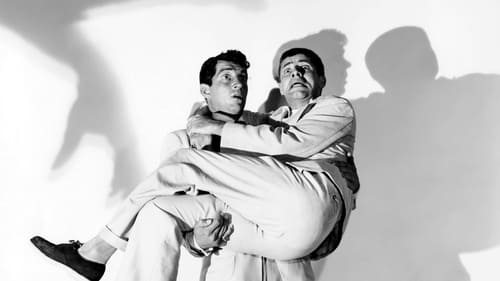
Carmelita Castinha
A nightclub singer and his partner escape mobsters by fleeing to Cuba with a beautiful heiress, who has inherited a haunted castle on an isolated island. The trio hunt for a hidden treasure and encounter a ghost, a zombie, and a mysterious killer...
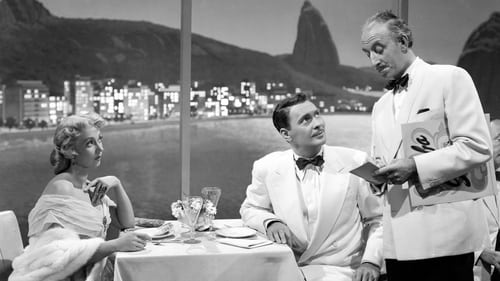
Marina Rodrigues
Mother and daughter compete over same singing role and, unbeknownst to each other, the same man.
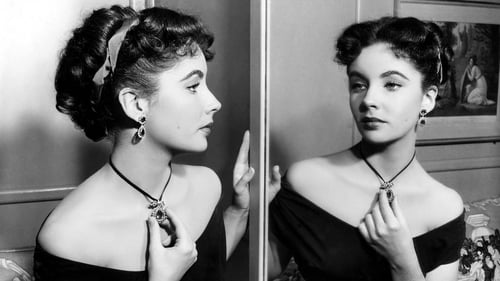
Rosita Cochellas
Best friends Judy and Carol compete for the affection of an older man during their high school dance. As Carol tries to rekindle Judy's relationship with Carol's bumbling brother, Oogie, Judy suspects that her father is having an affair with a beautiful dance instructor. The two girls team up to expose Judy's father -- who is only taking innocent dance lessons.
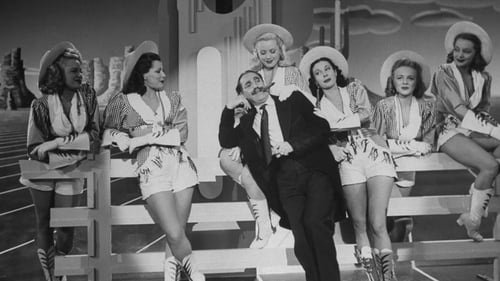
Carmen Novarro / Mlle. Fifi
A talent agent sells his girlfriend to a nightclub -- as two separate acts. The deception and constant costume changes are too much for his girl.
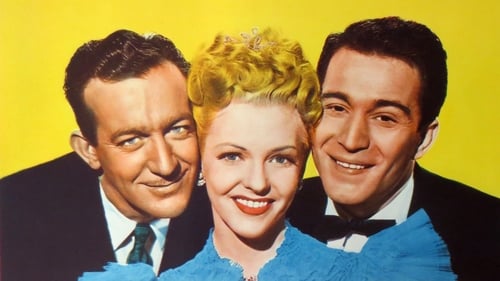
Michelle O'Toole
Out of work swing band maneuvers a gig working for a political campaign, by drawing in and entertaining prospective voters at rallies. The candidate is really a stooge for a corrupt political machine, which discovers the band's handsome and appealing singer would make a better stooge. Meanwhile, romance blossoms between the band's singers. When election day approaches, the band's singer wants out of the campaign, but the machine threatens to smear him and his pals in the band if he quits.
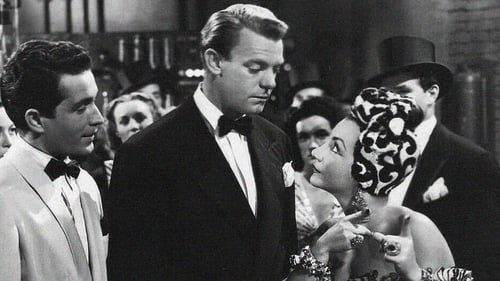
Chita Chula
Burlesque queen Doll Face Carroll is dismissed from an audition for a legitimate Broadway show because she lacks culture. Her boss/manager Mike decides that she can get both culture and plenty of publicity by writing her autobiography. He hires a ghost writer to do all the work, but doesn't count on the possibility that Doll Face and her collaborator might have more than a book on their minds.
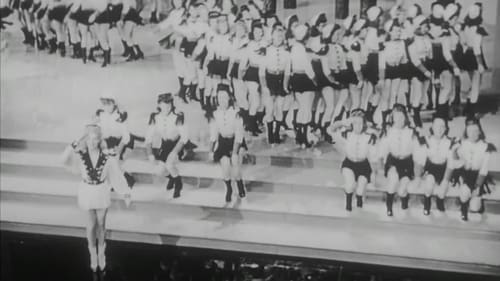
Self - Pinup Girl
Inspirational documentary short film featuring Hollywood stars promoting the sales of War Bonds through songs and skits.
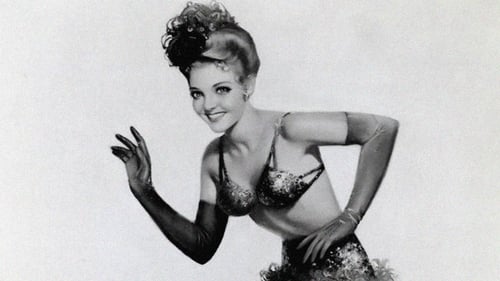
Chiquita Hart
The oddly-assorted Hart cousins: revue singer Blossom, con man Harry, and machinist Chiquita (who gets radio through her teeth!), inherit southern plantation Magnolia Manor, which alas proves to be a "termite trap" and tax liability. Fortunately, Sgt. Rocky Fulton from a nearby army camp appears with a plan to convert the place to a hotel for army wives; but to pay bills until then, they decide to put on a show. Of course, romantic and military complications intervene...
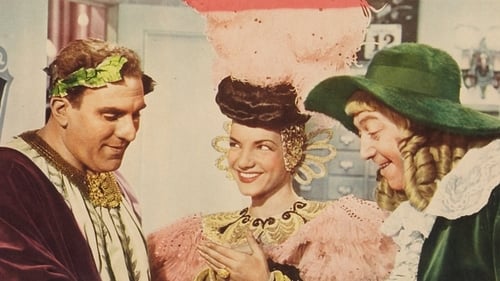
Princess Querida O'Toole
In 1922, a would-be classical composer gets involved with people putting on a musical revue.
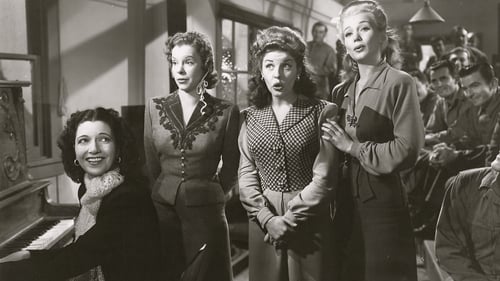
Carmen Miranda
Reenactments of actual USO experiences of its female stars entertaining troops overseas.
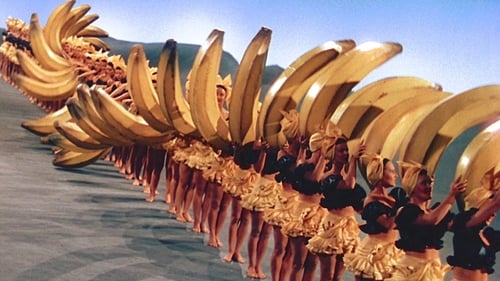
Dorita
A soldier falls for a chorus girl and then experiences trouble when he is posted to the Pacific.

Rosita Murphy
Broadway partners Vicky Lane and Dan Christy have a tiff over Christy's womanizing. Jealous Vicky takes up with her old flame and former dance partner, Victor Price, and Dan's career takes a nosedive. In hopes of rekindling their romance and getting Vicky back on the boards with him, Dan follows her to a ritzy resort in the Canadian Rockies, where she and Victor are about to open their new act. But things get complicated when Dan wakes after a bender to find that he's hired an outlandish Latin secretary, Rosita Murphy, which makes Vicky think he's just up to his old tricks again.
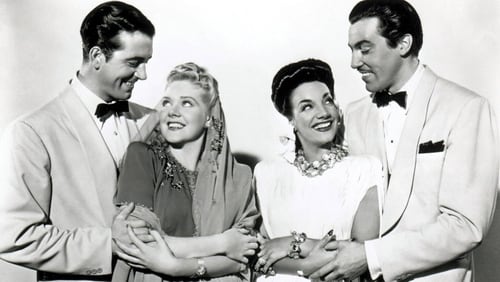
Rosita Rivas
A ship company employee, Jay Williams, is sent to Florida where one of the company cruise ships is stuck on a reef off of the coast. He obtains waivers from all of the passengers with the exception of Nan Spencer, a department store salesgirl who wants her vacation NOW, not later. Jay is instructed to take Nan to Havana and set her up in the best hotel and keep her entertained. She visits a night club where the star attraction is Rosita Rivas, and meets Rosita's worthless manager, Monte Blanca, who makes a play for her. Trouble also comes in the form of Jay's fiancée, Terry McCracken, when a romance develops between Nan and Jay.
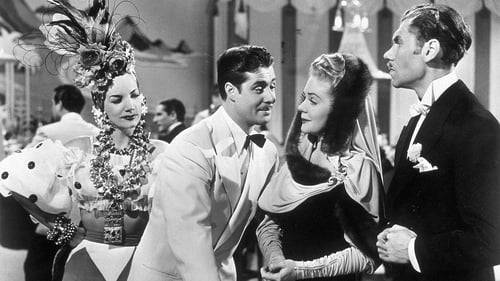
Carmen
An entertainer in Rio impersonates a wealthy aristocrat. When the aristocrat's wife asks him to carry the impersonation further, complications ensue.
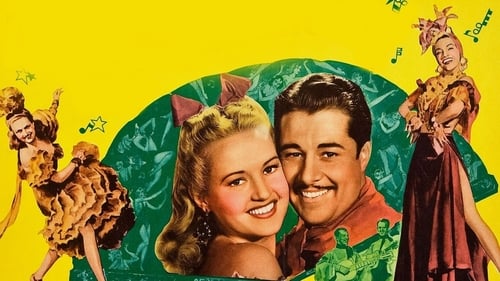
Herself
The story—in which an American heiress on holiday in South America falls in love with an Argentine horse breeder against the wishes of their families—takes a backseat to the spectacular location shooting and parade of extravagant musical numbers, which include the larger-than-life Carmen Miranda singing the hit “South American Way” and a showstopping dance routine by the always amazing Nicholas Brothers.

Queen of Bananaland
A man in charge of a publicity campaign for bananas decides to kidnap the Queen of 'Bananaland', a tropical island paradise, and take her to Rio, where she falls in love with a member of Carmen Miranda's backing ensemble, 'Bando da Lua'.

Two authors go look for a business to finance their dream musical.

Mimi

Themself
A man is looking for a radio singer named "Dulcineia." For this, he goes through the biggest hassles and problems. The plot, in fact, is an excuse for the exhibition of the musical numbers of the greatest Brazilian Radio artists.


























